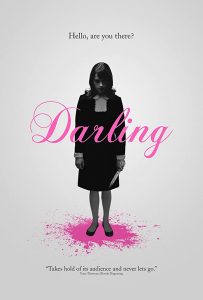 The most important thing I can probably say about Darling, I said to my wife a few minutes ago. “Oh no,” I said, “I forgot to finish my movie [that I was watching yesterday]. …wait. No, I did finish it.”
The most important thing I can probably say about Darling, I said to my wife a few minutes ago. “Oh no,” I said, “I forgot to finish my movie [that I was watching yesterday]. …wait. No, I did finish it.”
So anyway, there’s the 20-something house caretaker lady adjacent to what I think was a New York skyline, and she’s told by the person hiring her that it’s “the oldest house in the city, rumors of hauntings, last caretaker young lady jumped off the roof, haha, I shouldn’t be telling you this.” But no worries, she stays anyway. And the house is appropriately spooky and noisy at night, with lots of loud, 1-5 frame cutaways from her trying to sleep to disturbing close-up faces under blaring random noises.
Later, a businessman on the street returns to her an upside-down cross on a necklace that she found in a drawer and then left in the drawer, because she had just dropped it[1]. Also, there’s a narrow door at the end of an implausibly equally narrow hallway that she cannot open. And the drain in the shower looks dissolved away by acid, more of a portal to the unknown than a proper drain. And then stuff starts getting weird.
And you know what? I should be there for all of this! Well, except the random loudness. I think the single most annoying thing was the “look what I learned in art film school!” moment when she was [spoiler removed] with a hacksaw, and the underlying sounds were street construction equipment instead of what that would actually have sounded like. But I digress.
My problem here is, there’s no payoff. Was she slowly going crazy because she’s imbalanced, or because the house? Did almost anything that happened actually happen, or was it all because she was slowly going crazy? Was the creepy room at the end of the legitimately creepy hallway[2] a real thing, or just some room with a stuck door? They’re calling it a paranoid freakout, and, I guess it was that. I just don’t know what character(s) my sympathies should lie with, or really, frankly, almost any aspect of what happened. You would think a 78 minute movie would not manage to be too long, and yet here we are.
Oh well, can’t win ’em all.
[1] That is, she shouldn’t have been able to drop it on the street because she returned it to the drawer. Get it? Spooky!
[2] Seriously though. 10-15 foot white hallway, culminating in a door maybe 1.5 thin people wide, and the hallway is exactly the same width as the door, with no other doors along the sides, and only a sharp corner to the rest of the house at the entrance end of the hallway. I think that creepy, creepy, “probably they built it for the movie because who would ever have that creepy of a hallway?” hallway was at least two thirds of the film’s appeal for me[3].
[3] I mean, even before I decided I didn’t like the movie in the first place; the 2/3 comment is supposed to highlight how effectively creepy it was as a visual, not how little i liked the rest of the movie. (It’s more like 95% of the appeal after the fact.)
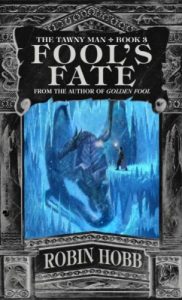 I have not finished many series lately.
I have not finished many series lately. 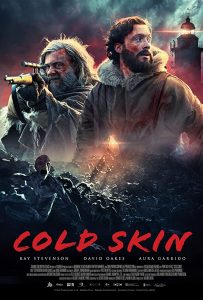 Remember that weird-looking (or perhaps I mean surreal-looking) movie about the people in a lighthouse dealing with mermaids? So, I never saw the one you’re thinking of, but I did see
Remember that weird-looking (or perhaps I mean surreal-looking) movie about the people in a lighthouse dealing with mermaids? So, I never saw the one you’re thinking of, but I did see 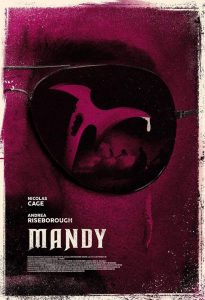 Then I saw
Then I saw 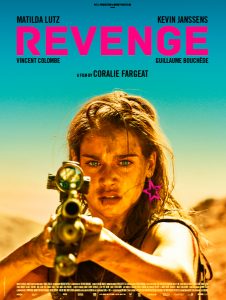 Another entry from the over a year old now back of my list of Shudder movies[1].
Another entry from the over a year old now back of my list of Shudder movies[1]. 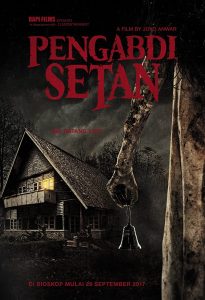 Today I learned that Indonesian horror cinema, much like the local version, sometimes goes back to the well. Because it turns out that
Today I learned that Indonesian horror cinema, much like the local version, sometimes goes back to the well. Because it turns out that 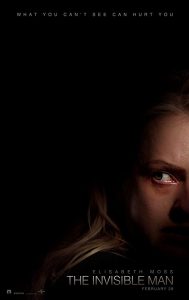 Then, on Friday night, I went to see another movie. Woo, movies!
Then, on Friday night, I went to see another movie. Woo, movies!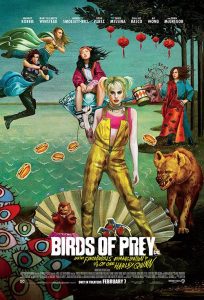 So, I did it! I got the Alamo Season Pass thingy, which this is not a commercial for, but one free movie a day is kind of great? I have to go twice a month to not lose money on the deal, and I want to go a lot more than that, although I think there’s a tiny human hoping to thwart my plans. …who will probably succeed. But for now, salad days[1]!
So, I did it! I got the Alamo Season Pass thingy, which this is not a commercial for, but one free movie a day is kind of great? I have to go twice a month to not lose money on the deal, and I want to go a lot more than that, although I think there’s a tiny human hoping to thwart my plans. …who will probably succeed. But for now, salad days[1]! This week in the Deathlands, our heroes… are not in the Deathlands, actually. See, for the past three to five books, there have been hints of circa 17th C samurai that have been using the same teleportation gateways that our band of semi-heroes have been using to travel around the post-apocalyptic remains of what was once the United States. (So, y’know, near future sci-fi.) All of which to say, this time they come out in Japan!
This week in the Deathlands, our heroes… are not in the Deathlands, actually. See, for the past three to five books, there have been hints of circa 17th C samurai that have been using the same teleportation gateways that our band of semi-heroes have been using to travel around the post-apocalyptic remains of what was once the United States. (So, y’know, near future sci-fi.) All of which to say, this time they come out in Japan!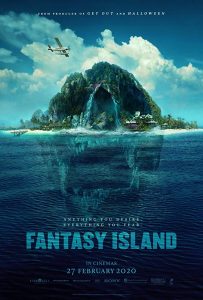 If you’re like me[1], when you saw the preview’s for Blumhouse’s
If you’re like me[1], when you saw the preview’s for Blumhouse’s